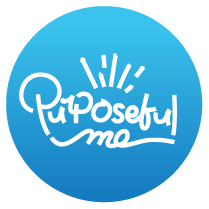Are You Having The Talk?
What is the talk? Who do you have the talk with? What does it cover and when should you have it?
Growing up in Nigeria, I was woken up in the middle of the night for some talks. Sometimes I was woken up by visiting relatives and sometimes by my parents. Some offences called for ‘middle of the night’ talks while minor ones called for ‘any time of day’ approaches.
I remember once being woken up by my aunty because she felt the need to address my supposed ‘lack of respect for my older brother’. This was because I called him by name which was a sign of disrespect.
I love my brother to bits and growing up, it was initially just the two of us. I never saw a difference between us even though he’s a couple of years older than me. Some relatives had an issue with the fact that I didn’t add ‘brother’ to his name which culturally is a sign of respect.

As a child I believed respect didn’t equate to using ‘brother or uncle or sir or ma’ while addressing someone. I saw too many people using all those pre-fixes for people while disrespecting them so it didn’t add up for me.
My choice was to treat everyone with respect to their faces and behind their backs. It was to see that all humans are created equal and not one person is more important or valuable than the other.
So you can imagine my horror at some of the recent headlines in American news – the way black lives are threatened and taken away at will just because some people feel they are superior or that ‘other lives’ don’t matter.
At this point, it becomes critical for us to take a long hard look at ourselves and the role we may be playing in contributing to such a society.
I have seen so many versions of ‘I matter more than you’ play out in different facets of life with some almost coming across as completely innocent, thinly disguised in religion, selfishness and ignorance.

Scenario one: I have an idea or vision and I would love for you to come onboard and support it. You are just the kind of person we need.
Possible responses: I love your idea and happy to jump on board, I love your idea but timing is not great for me as I have other commitments or I love your idea but I am currently running with my own vision and that needs to be my priority.
What is your reaction? Do you always expect a ‘Yes’ from others? Are you angry when they can’t commit to your own plans or vision? Is it fair for you to be angry? Why is yours more important than theirs? Why should anyone be made to feel guilty for saying ‘No’ to you? Is this a case of ‘prioritise me because I matter more than you?
Scenario 2: I want you to do something that will require you to prioritise my request over something else that’s extremely important to you even though I know you can only realistically do one.
What is your reaction? Do you expect a ‘Yes boss! I will do just that because your wish is certainly my command.’ Do you expect others to live by rules that only favour you? Do you think it’s fair or okay to put someone in that position?

Scenario 3: Your outfit versus My costume. I don’t know how many times I have googled the word ’costume’ wondering if I am becoming too sensitive.
What is your take on this? According to Wikipedia, Costume is the distinctive style of dress that reflects class, gender, profession, ethnicity, nationality, activity or epoch.
The general usage of the word has now become more limited to unusual and out-of-date clothing and to attire intended to evoke a change in identity such as theatrical, Halloween and mascot costumes.
So many times, I have seen people compliment those wearing their ‘own normal’ traditional clothes by saying, ‘I love your costume’ and my cheeky, sometimes silent, response is, ‘I didn’t think they were wearing a costume in the same way that I don’t see track suits, dress or shirt as costumes.’
Is this an innocent compliment or is this driven by a deep-seated fundamental belief that any garments that don’t look exactly like ‘what I would wear’ must be a costume?

Is this just a case of grammar or do I subconsciously choose to skip over simpler words like dress, attires, outfit, or wears and land on the more nuanced and archaic word, ‘costume’?
Scenarios similar to this could be based on race, wealth and marital status, religion, sexual orientations, North versus South divide, or East versus West. It could even be driven by the sports club we support and how that makes us better than others.
So what is the talk? It must address some keys questions such as: Do I believe and act as though I am more important or valuable than others?’ Do I act entitled to certain privileges over others? Do I expect others to put me on a pedestal and prefer me over themselves or do I allow them a choice?
Do I act or see myself as superior to others? Do I judge or look down on others simply because they look different and don’t share my beliefs? Do I disguise my real beliefs about others with political or religious correctness?

What do I really believe and is it right, justifiable or godly? We must be willing to face our own answers to these tough questions even as we call out others on their behaviours.
The talk must start with ourselves, then with our children and with society at large.
We have a responsibility to challenge ourselves to make the world a better and safer place. As purposeful parents we have a responsibility to have the talks with our children.
As grownups, we have a responsibility to challenge elderly relatives and those who still hold on to wrong mindsets.
Staying quiet and doing nothing in the face of discrimination makes us complicit and only allows for evil to continue to be perpetrated.
Thank you for reading my post. Please share this with your connections and have a great and purposeful week.
Sorry, the comment form is closed at this time.


Folajimi
Okay.
This article impacted me.
I’m not sure I have enough space to pen a full comment.
Welldone Yemi
Yemi Adelekan
Thanks Jimi. You’ve got loads of space.
Steve
Timely intervention, Yemi
Yemi Adelekan
Thank you Steve. Much appreciated.
Bukola Ajayi
Fab. Fabulous write up. Succinct! Thanks Yemi.
Yemi Adelekan
Thank you 🙏🏾🙏🏾
Nneka
This talk must indeed start with us and what we believe deep down, it may not show up in color racism but in other aspects . we must challenge ourselves to unlearn something’s first before expecting it from others. The change starts from you and I.
Thank you Sister Yemi
Yemi Adelekan
Thanks for your comment. Indeed we have to unlearn many things. Also we must recognise where we’ve been complicit and start to change.